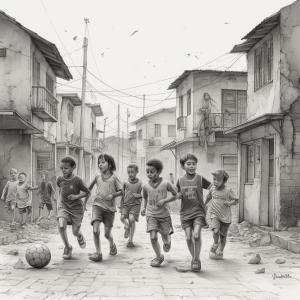This question is too vague and too generic to answer on its own. Different variables and different situations call for different schedules and different levels of participation. Answers will differ between professional players and amateurs as will the answers for kids and adults.
The number of times you attend training is not an indication of your development. Whether it’s once, twice, or three times it doesn’t compare to the quality of training. Have you ever heard the saying “quality over quantity”? The same can be answered here.
Which player would you rather be? Player A: that attends one training session a week but is put through an intense workout while learning the fundamentals of the game. The training session is organized, structured and follows a slow but steady progression to maximum efforts that replicate match situations.
Or Player B: that attends training 3 times a week. However training is not organized or structured, most of the session is spent jogging around the ground at virtually a walking pace. Half the time is wasted waiting around for your turn to participate in the drill and the other half is wasted waiting for the coach to organize the training session.
Most people would prefer to be player A. The same principle applies quality over quantity. Player (A) benefits more from his 1 training session than does Player B. Can everyone see that? Now let’s assume a few things. What if Player B was an amateur player who played in the local team with his friends? The team consisted of close friends who have known each other for a very long time. They love getting together and catching up for a social game of soccer. Development, skills and fitness are not priority, but having fun and catching up with friends is. The end of training is rewarded with a beer at the local to talk about recent events.
The point I’m trying to make is, every individual is different and has different needs and goals. A player trying to make a living from soccer will need to train a lot more and a lot harder than someone who is looking to stay active. Kids that want to one day play professionally will have to put in more time and effort to succeed then a kid that wants to run around in the sun with his friends.
To try and answer the initial question would be impossible. Every player has different goals and different reasons why they play soccer. A better question might be, “What are your goals and ambitions in soccer”? By answering this question you can evaluate the type of training you need and the number of times a week you will need to train.
The take home message of today’s post is,”advice is only useful if it applies directly to you”. If the information, research or advice does not apply to you, then it’s in your best interest to discard the information put before you. Remember that Soccer is a small part of life. When doing your research, apply only the information that’s relevant to you. That way you can make an informed decision on how many times you need to train. Simply put, relevance is the key.



Leave a Reply